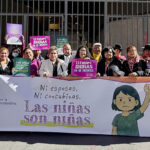
In Sept. 2025, the Bolivian government approved a ban on all marriages under the age of 18. This success builds on years of advocacy by Ipas and partners to end child marriage, which is disturbingly common in Bolivia.

On April 23, the Bolivian Senate approved a bill to eliminate legal exceptions that previously allowed marriage from the age of 16 with parental or judicial authorization. This milestone represents a historic victory for the protection of girls and adolescents against child marriage.

The Inter-American Court of Human Rights has ruled to recognize abortion as a human right in a case centered around Beatriz, a young woman in El Salvador whose pregnancy threatened her health and life.
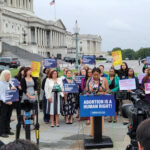
A resolution condemning the criminalization of abortion in the United States and urging governments at all levels—federal, state and local—to uphold abortion as a human right was introduced in the U.S. House of Representatives on September 24 with tremendous support—96 original co-sponsors.
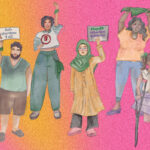

Marking the 21st anniversary of the landmark Maputo Protocol, which guarantees extensive rights to African women and girls, Ipas hosted a two-day regional conference in Mozambique devoted to exploring the challenges and successes of implementing this fundamental treaty for gender equity.

Ipas and partners hosted the second Green Wave Gathering last week in Mexico City, uniting 150 activists from across the Americas, including from the United States, Peru, Argentina, Brazil, and more. Organized by the Women’s Equality Center, Ipas Latin America and the Caribbean, Ipas United States. and the Guttmacher Institute, the two-day event inspired and fortified movements for reproductive justice and abortion rights throughout the region.

Research from around the world shows that the ability to decide when and whether to have another child helps mothers take better care of themselves and the children they already have.
The International Sexual and Reproductive Rights Coalition (ISRRC) celebrates the 30th anniversary of the International Conference on Population and Development Programme of Action (ICPD PoA) and the outcomes of its reviews and its transformative impact on the lives of women, adolescents, girls, and structurally excluded groups across all regions.
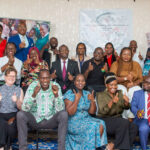
In a landmark development for the Eastern and Southern African region, parliamentarians from diverse backgrounds and countries have united under the banner of the Eastern and Southern Africa Parliamentary Caucus on Sexual Reproductive Health and Rights (ESAParc).

In the nearly two years since the U.S. Supreme Court struck down the constitutional right to abortion in the United States, the abortion landscape has become fragmented and increasingly polarized. In more than half of the 50 U.S. states, abortion is now completely banned, heavily restricted or under legal threat.

The United States is violating human rights by denying legal access to abortion—and should take immediate action to end the criminalization of abortion at the federal, state and local levels. This is the newly released conclusion of the United Nations Human Rights Committee in response to testimony from Ipas and partners in October.
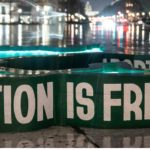

The U.S. Supreme Court’s decision to overturn Roe v. Wade officially denies millions of U.S. residents fundamental rights—to health care, to bodily autonomy, and to freedom.

A U.S. state legislator working to protect abortion access in her state is finding inspiration in Mexico’s abortion rights movement. Here’s our Q & A with Rep. Julie von Haefen of North Carolina:

